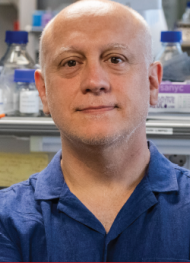EToH Seminar Series: Understanding neutrophils

About the event
On Wednesday, March 22, Andres Hidalgo (Department of Immunobiology, Yale School of Medicine) will be giving a talk entitled “Understanding neutrophils” as part of the Emerging Topics of Health (EToH) Seminar series, cohosted by the Departments of Microbiology and Immunology, Physiology and Human Genetics, the Goodman Cancer Institute (GCI), the McGill University Research Centre on Complex Traits (MRCCT) and M[i]4.
If you are interested in meeting with Professor Hidalgo one-on-one, send me an email to marianne.provost [at] mcgill.ca
Grad students
Sign up to have lunch with our guest speaker! There will be a lunch with Professor Hidalgo for graduate students and postdocs. If you would like to have lunch with our guest speaker, please fill out this SURVEY. The lunch will be held from 12h to 1h in room #530 (Bellini).
Note
There will be a 5à7 after the talk at Brass Doors Pub (2171 Crescent Street) and anyone (students, postdocs, and faculty) are welcome to join!
Abstract
Neutrophils are formidable defenders. Their vast numbers, constant production, high cytotoxicity and even the capacity to commit altruistic suicide underlie their capacity to efficiently protect in a microbe-rich world. But neutrophils are much more than immune sentinels, as evidenced by the expanding repertoire of functions discovered in the context of tissue homeostasis, regeneration, or chronic pathologies. In my talk I will discuss general functional properties of the neutrophil compartment that may be relevant in most physiological scenarios in which they participate, including specialization in tissues, transcriptional noise and bias in inflammatory sites.

